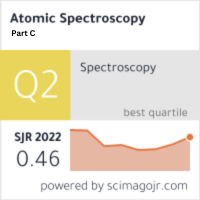Antibacterial and anti-quorum sensing activity of Poly(amidoamine) Generation 4 loaded Quorum Quencher peptide against MRSA, Staphylococcus aureus and agr mutants
Abstract
Methicillin-resistant Staphylococcus aureus (MRSA) is the predominant pathogen responsible for antimicrobial resistance in both community and healthcare settings. A promising approach to combat MRSA is to target its quorum sensing (QS) system. The objective of this study was to target the QS in MRSA using a novel quorum quencher (QQ) peptide called QQ3, which acts as a histidine kinase inhibitor. However, therapeutic peptides have limitations, such as poor membrane permeability and insufficient in vivo stability. To address these limitations, this investigation used PAMAM dendrimers generation-4 (G4) as a nanocarrier for the peptide, as they possess antimicrobial properties, to enhance stability, facilitate efficient drug delivery, and increase potency. The average particle size of the formulated G4-QQ3 complex was determined to be 268nm, with a polydispersity index value of 0.32. The minimum inhibitory concentration (MIC50) for the formulated nanoparticles was found to be 20μM, as demonstrated by a growth assay. Additionally, the hemolysis activity of MRSA was inhibited at a concentration of 10μM. The G4-QQ3 complex exhibited the ability to inhibit, penetrate, and eradicate biofilm in MRSA strains, with inhibition percentages ranging from 63 to 70%. Furthermore, the cytotoxicity of the formulation against RAW 264.7 cells indicated that the nanoparticles were cytocompatible. This study confirms that encapsulating the QQ3 peptide within PAMAM G4 dendrimers results in a potent anti-virulence and antibacterial effect. These findings have significant implications for the development of novel treatments for MRSA infections.



